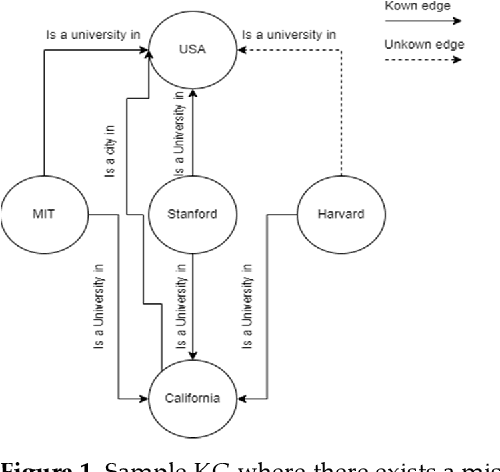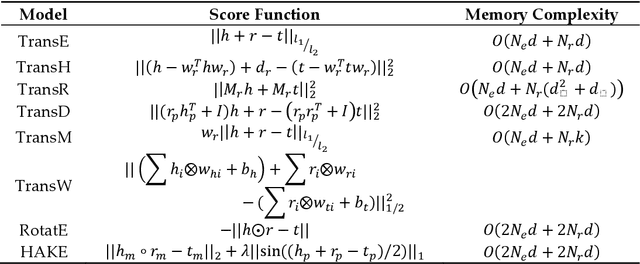A Review of Knowledge Graph Completion
Paper and Code
Aug 24, 2022



Information extraction methods proved to be effective at triple extraction from structured or unstructured data. The organization of such triples in the form of (head entity, relation, tail entity) is called the construction of Knowledge Graphs (KGs). Most of the current knowledge graphs are incomplete. In order to use KGs in downstream tasks, it is desirable to predict missing links in KGs. Different approaches have been recently proposed for representation learning of KGs by embedding both entities and relations into a low-dimensional vector space aiming to predict unknown triples based on previously visited triples. According to how the triples will be treated independently or dependently, we divided the task of knowledge graph completion into conventional and graph neural network representation learning and we discuss them in more detail. In conventional approaches, each triple will be processed independently and in GNN-based approaches, triples also consider their local neighborhood. View Full-Text
 Add to Chrome
Add to Chrome Add to Firefox
Add to Firefox Add to Edge
Add to Edge